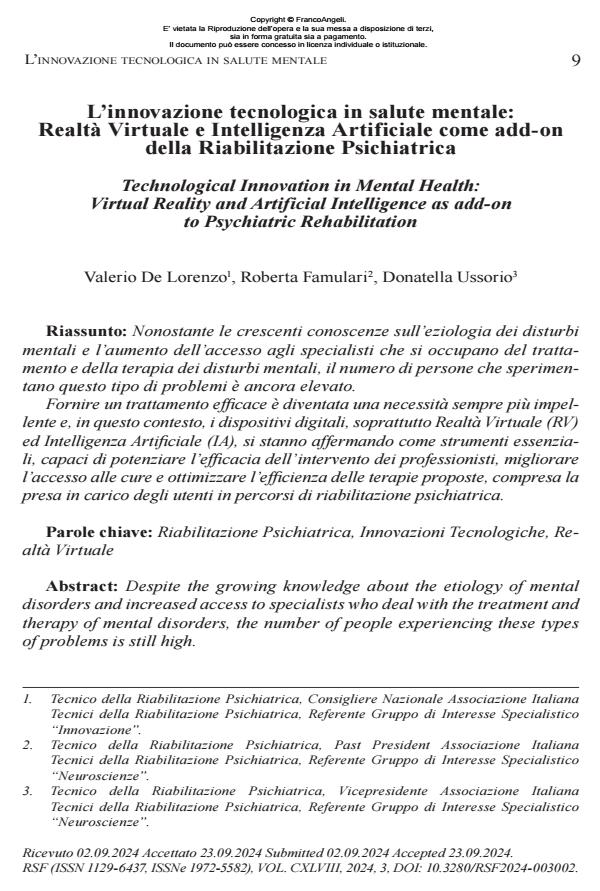Technological Innovation in Mental Health: Virtual Reality and Artificial Intelligence as add-on to Psychiatric Rehabilitation
Journal title RIVISTA SPERIMENTALE DI FRENIATRIA
Author/s Valerio De Lorenzo, Roberta Famulari, Donatella Ussorio
Publishing Year 2024 Issue 2024/3
Language Italian Pages 17 P. 9-25 File size 766 KB
DOI 10.3280/RSF2024-003002
DOI is like a bar code for intellectual property: to have more infomation
click here
Below, you can see the article first page
If you want to buy this article in PDF format, you can do it, following the instructions to buy download credits

FrancoAngeli is member of Publishers International Linking Association, Inc (PILA), a not-for-profit association which run the CrossRef service enabling links to and from online scholarly content.
Despite the growing knowledge about the etiology of mental disorders and increased access to specialists who deal with the treatment and therapy of mental disorders, the number of people experiencing these types of problems is still high. Providing effective treatment has become an increasingly urgent need, and in this context, digital devices, especially Virtual Reality (VR) and Artificial Intelligence (AI), are establishing themselves as essential tools with the possibilities to enhance the effectiveness of professional interventions, improve the access to care, and optimize the efficiency of the proposed therapies, including the taking care of and management of users in psychiatric rehabilitation pathways.
Keywords: Psychiatric Rehabilitation, Technological Innovations, Virtual Reality.
Valerio De Lorenzo, Roberta Famulari, Donatella Ussorio, L’innovazione tecnologica in salute mentale: Realtà Virtuale e Intelligenza Artificiale come add-on della Riabilitazione Psichiatrica in "RIVISTA SPERIMENTALE DI FRENIATRIA" 3/2024, pp 9-25, DOI: 10.3280/RSF2024-003002